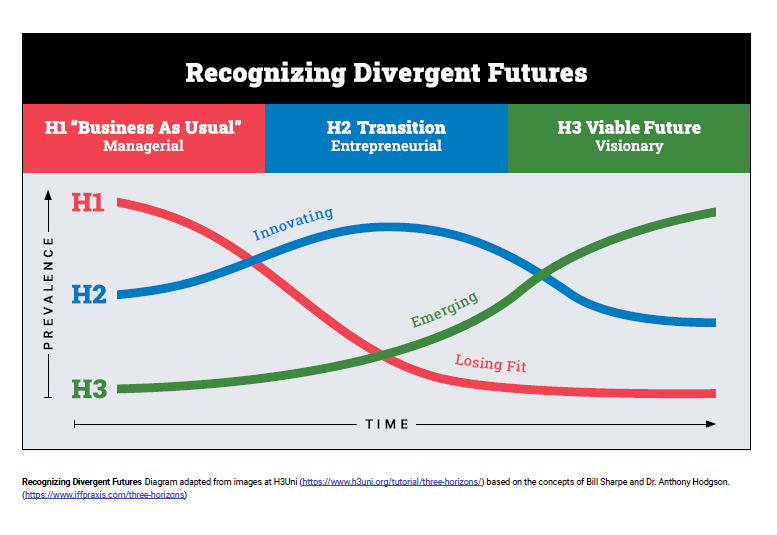By continuing to use our site, you consent to the processing of cookies, user data (location information, type and version of the OS, the type and version of the browser, the type of device and the resolution of its screen, the source of where the user came from, from which site or for what advertisement, language OS and Browser, which pages are opened and to which buttons the user presses, ip-address) for the purpose of site functioning, retargeting and statistical surveys and reviews. If you do not want your data to be processed, please leave the site.
As Management Consultants, we must resource transformation
By: Lyn McDonell, M.A., C. Dir, FCMC
In what worldviews are we consulting? How can our competencies help shape an uncertain future? I now take as a fact that great accelerating change is underway changing much of what we know. As a management consultant, that fact is evolving everything I am saying and doing. I need to better understand and participate in the transformation purposefully—to become a resource through this time.
Due to our learning and experience as professional management consultants working across organizations and sectors, we often hold a broad overview while seeing things cross-functionally. At this time, to help clients consider and prepare for what happens next even as they manage the day to day, we’re both well-positioned and challenged to step into what is a void of uncertainty.
Everything is on the table now—organizational purpose and value, strategy, investments, what people must learn about, new skills, alliance-building, and “sacred cows.” No one knows what is going to happen where and when, but there will be disruption. Management consultants can approach this with cool resourcefulness. It is our professional obligation to be one step ahead, updating our theories and practices to help governance, management, and staff teams to anticipate change in their contexts, make wise choices, navigate crises, and adapt successfully.
A useful tool I’ve found for discussing the uncertain future is the Three Horizons Thinking framework developed by Bill Sharpe and Dr. Anthony Hodgson. It’s easily grasped. It recognizes three horizons or views of the Future. Horizon One (H1) is Business-as-usual, the current state of affairs. Horizon Three (H3) represents the emerging changes and transformational shifts we sense will be needed for things to be future-fit and sustainable. Horizon Two (H2) anticipates the messy transition between here and there. Thinking in these Horizons allows versions of these future, as read by different mindsets, to be viewed simultaneously. It acknowledges that Business as Usual or Horizon 1 (H1) will erode, transform, change and pass into new states. Discussion can interrogate what to hold onto and preserve, and what to release. H3 is a desired future to be cultivated and pockets of that may be happening already in H1. In H2, there are different responses. Choice-making here must be especially conscious of what horizon is being strengthened, and why. The big question here is: “Are we bringing about H3, or are we prolonging something in H1 that needs to go?”
In this unparalleled time of transition, the Three Horizons Thinking Framework provides boards and senior leaders the vocabulary and the scaffolding that will be necessary in organizational navigation going forward.
On April 10th, as part of CMC-Ontario’s Learning Series, What’s Up Wednesdays, I’ll be talking about Three Horizons Thinking as a valuable consulting tool for creating transformational dialogues, part of my broader work in Regenerative Governance.
About the Author:
Lyn McDonell is Principal of The Accountability Group, Inc. She has served as CEO, COO, Board Chair, and Director, and is a Fellow of the Institute of Certified Management Consultants of Ontario and a Chartered Director. She earned her MA studying the stages of organizational development.
An experienced facilitator, Lyn has provided governance training to directors across sectors since 2006. Her passion is inspiring boards and senior leaders to transition from “business as usual” towards thrivable futures. She helps leaders recognize their critical role in leading context-based sustainability and how they can foster conditions for successful adaptation.
Lyn is adjunct faculty in the Master of Financial Accountability Program at York University and a contributor to The Handbook of Board Governance: A Comprehensive Guide for Public, Private, and Not-for-Profit Board Members, 2nd (2020) and 3rd (2024) Editions. (Wiley). Richard Leblanc (Editor).


 [Copy 11185461].jpg)


